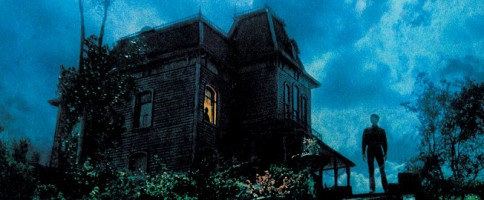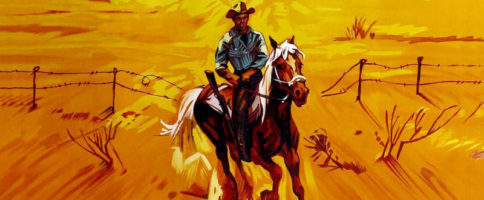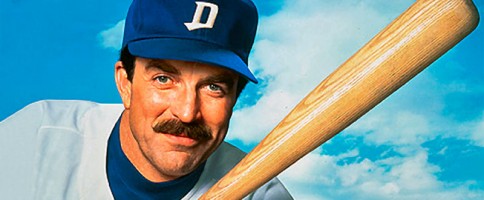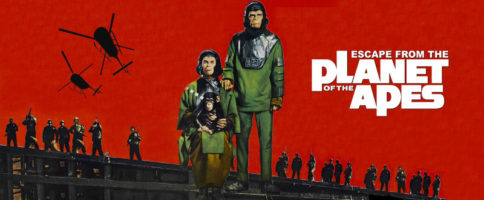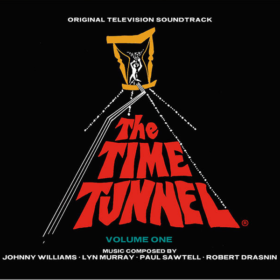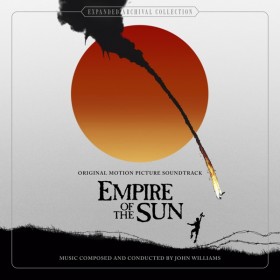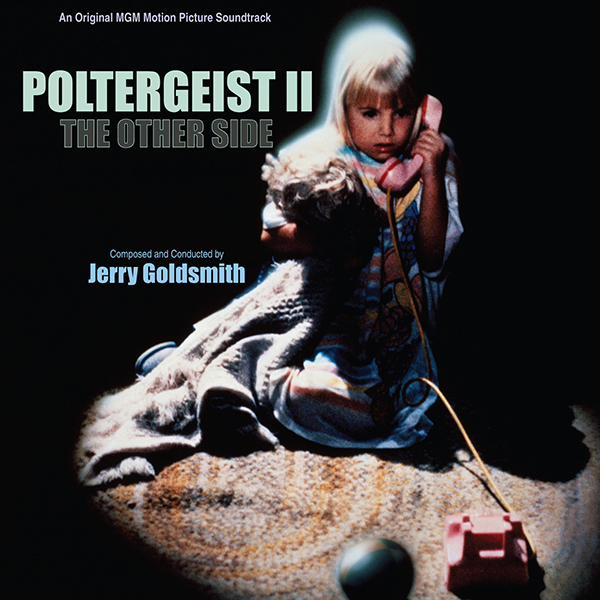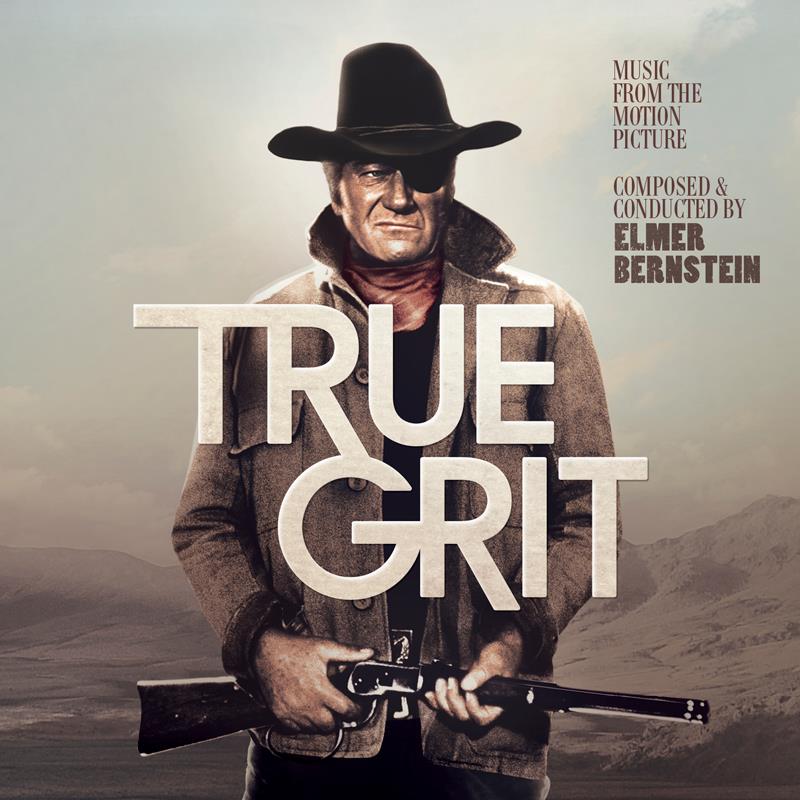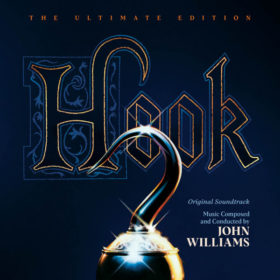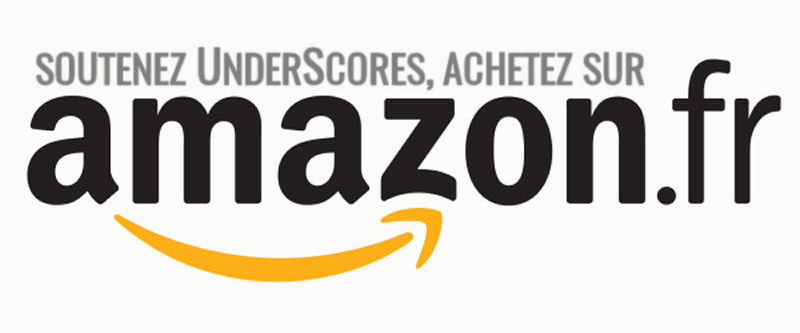![]()
At the end of 2002, film music aficionados discovered in their favorite record stores or on the internet the CDs from a new, small label: La-La Land Records. At first mostly issuing or reissuing scores from horror movies (Re-Animator, From Beyond, Creepshow or Christopher Lennertz’s Saint Sinner), the small label has gradually grown and gained a well-deserved place amongst the bigger players such as Varèse Sarabande, Film Score Monthly and Intrada.
In 2009, La-La Land has finally secured his place in the pantheon of specialized labels, gaining access to the Paramount Pictures archives deemed inviolable for decades. The release of Elmer Bernstein’s Airplane! opened a breach for all film music labels to use, offering fans numerous scores they wished for in vain for ages. La-La Land got its share of the pie as well, releasing famous scores, both from the Paramount catalog and other rightholders, titles such as Innerspace, I.Q. and Seconds, all three from Jerry Goldsmith, Nate & Hayes by Trevor Jones, the complete scores from The Fugitive by James Newton Howard and Mars Attacks! by Danny Elfman or, more recently, Alex North’s Dragonslayer. La-Land’s co-founder, Michael V. Gerhard, answered with openness and enthusiasm to our questions.
ONCE UPON A TIME…
What is your background?
I was born in Burbank, CA… I went to school there and now work there. While neither one of my parents were in the « business », I felt it flow through my veins. Writing and directing are my true passion, but since that was not panning out, I turned my attention to my other love: film music.
What is the first film score you ever noticed?
Raiders Of The Lost Ark. I was 4 ½ years old and my uncle took my sister and I to see it at the La Reina theatre in Sherman Oaks. I vividly remember watching the truck scene and having my first cinematic orgasm. The action, the cinematography, the stunts and that music. My god, that music! It’s like nine minutes of musical perfection matched up to the most awesome action scene ever filmed. Sadly, the theater is now some sort of day spa, but they kept the La Reina marquee. One of my pipe dreams is one day to make enough money to buy the place and restore it to my childhood days. I’ll play Raiders every weekend!
LA-LA LAND RECORDS
Why did you decide to create your own label? How do you share the boss chair with your associate Matt Verboys?
Day to day operations, overall production choices and negotiation strategies are shared 50/50 with us. Matt handles most of the retail distributor stuff and a lot of the artwork proofing and overall copywriting and I handle the project juggling, contract writing, accounting and album producing duties (when I produce the project). When we started the company back in October 2002, we had a five year plan: grow, grow, grow! Our first year, we released 3 soundtracks. Each subsequent year, we released anywhere from 10 to 15 CD’s. In 2009, we broke out of that mold and released 29 CD’s. In 2010, we are aiming for 50! We have been very fortunate to have all these wonderful doors open us to us in the past few years. A lot of the studios realize that it’s better to let companies like ours release their older titles than to have them gather dust. Plus, with the advent of digital technology, it makes these projects more affordable for us and it gives the studios a digital master to upload on to iTunes and such.
How did the beginnings of La-La Land Records happen?
At the time, Matt was working at a small production company called Numenorean. He asked me to meet with the gents who owned the company and talk to them about possibly starting up a record division. Being big scores hounds themselves, they jumped at the opportunity. After working with them for a few months, Matt and I parted ways from Numenorean and decided to go into business for ourselves. We did have two other partners when we began, both of whom left early on citing financial hardships (Matt and I were single and they were married with children: they had more mouths to feed than we did). A silent partner left early on, but Paul Luebbers, a great guy, (whose name you will see on some early releases) stayed on for about a year and half.
Can you explain why you choose this name for your company?
Funny thing is that was not our first choice. Originally we had chosen « Hollywoodland Records ». However, after doing some research we discovered that the fine folks at Universal had trademarked, or were trying to trademark, the name « Hollywoodland » with the intentions of opening up a theme park with that moniker. So, we had to think fast and like a bolt of lightning it hit us (Matt first) : La-La Land Records! We all loved it and the best thing was it was not taken!
What is the size of La-La Land now? How many people do work for you there?
Day to day operations consist of just Matt and myself. However, we have a guy come in to help with shipping when things get busy… Sometimes more people (like we did at Christmas). We have four producers, two art directors, an ad man, a publicist, a lawyer, a book keeper, an accountant, three wonderful engineers, and about a half a dozen or so brilliant writers typing away like chimps at the keyboard writing up our liner notes. All in all I guess you can say we have about 25 different individuals who get 1099’d from us.
Can you describe precisely what your job is?
Music producer, lawyer, secretary, mail clerk, publicist, fireman, policeman, student, teacher, accountant, and all around punching bag. I do it all, except master the CDs. I leave that up to guys like James Nelson and Mike Matessino. They simply are the best.
La-La Land Records do produce both limited and unlimited records. How do you chose what is limited?
The market dictates that for the most part. Newer titles like current films and TV shows of course go out to the retail marketplace and, 90% of the time, are not limited. The older titles are limited because, frankly, the market for this stuff is tiny, less than 1% of the overall music buying market.
La-La Land Records was the first label to crack the Paramount vaults. How did you manage this?
We have Dan Goldwasser to thank for that. Dan had wanted to produce soundtracks ever since I met him. I always told him: « Bring me a project and you can produce it ». So, one day, he brings us Paramount… It was just by sheer luck. It was something he had been working on for some time. He managed to grab the attention of Randy Spendlove (President of Motion Picture Music for Paramount Pictures) and pitch him on the idea of letting a company like La-La Land crack open the vaults and release some holy grails. We took a meeting with Mr. Spendlove, showed him our products and discussed what we wanted to do with Paramount’s music and he said okay… It was awesome! He was a genie granting our one wish!
What do represent for you the score from Airplane! by Elmer Bernstein? Why did you choose this one as the first Paramount title?
To be honest with you, it was simply the first title on our wish-list that Paramount cleared for us. And that’s fine because Airplane! is a film and score that was near and dear to our hearts. Dan, Matt and I are all products of the 80’s and we watched films like Airplane! a hundred times. It always made us angry that Elmer’s pitch perfect score was never made available and so, we wanted to do something about that. Plus, it also gave us the opportunity to sit down with ZAZ and producer Jon Davison and discuss the film with them and what it was like working with Elmer. In other words, we recreated the Wayne’s World/Alice Cooper scene « We’re not worthy! We’re not worthy! » Ha Ha!
You released some video game scores, but not for quite some time. Why?
We had some decent success with video game scores, but once Sumthing Else came into the fray, we decided to focus our energies on film and TV projects.
In 2009, La-La Land released its most important number of releases with no less than 29 new albums. Does it mean it was a good year, from a financial point of view?
Our best ever. We saw sales spike to levels we always wanted to achieve. It was a boom, and considering the state of the economy, it did come as a surprise. We are grateful to our customers and hope to continue to deliver to them the kind of quality product they have come to expect from us.
2009 can be seen as a pivotal year for the development of your label. Beyond the opening of Paramount studios vaults, you did conclude another agreement with Atlantic Records, which allowed you to reissue of popular titles like Mars Attacks! and The Fugitive. What’s the story behind it?
We were working the Los Angeles Fangoria convention in 2008 and this gentleman who works for Rhino came up to our table and asked us if we would be interested in possibly reissuing some out of print titles from the WEA catalog. Before you can say « Ack! Ack! » we jumped at the opportunity. It has proven to be a wonderful learning experience that has resulted in some great releases! 2010 will see more titles from our Expanded Archival Collection, some from WEA and some from Sony BMG.
La-La Land Records succeeded to release Innerspace, one of the most requested Jerry Goldsmith scores. How did you manage to negotiate with Geffen Records?
It was not Geffen’s call. The score rights had reverted back to Warner and we got them that way.
La-La Land Records recently announced the release of Alex North’s Dragonslayer…
Dragonslayer was also on our Paramount list, but the elements were nowhere to be found. That is, until our good friend at Intrada, Doug Fake, suggested I contact Nick Redman at Fox and see if they were there as part of the Len Engel collection. As luck would have it they were! So, we have 3 very important people to thank for this release: Doug, Nick and the late Mr. Engel.
What can we expect from La-La Land Records in 2010?
We have a lot of exciting projects coming up later this year, projects from Jerry Goldsmith, Michael Kamen, Danny Elfman, Les Baxter and John Williams… Not to mention all the wonderful composers in between…
What are your relationships with the other labels? Are you aware of their projects?
Not really. From time to time I speak with Lukas (Kendall) at FSM and Roger (Feigelson) at Intrada, but for the most part we are all off doing our own thing, hoping that we don’t collide on that wacky release date highway. We’re all film music fans, so we get excited about each other’s releases when they hit.
PRODUCTION SECRETS
Which are your criteria to select scores you are about to produce? Do you balance between the financial aspect and the artistic one before producing?
It depends on the project. For the most part we ask ourselves this: « Would I pay $20 for this? » Beyond that, there’s a whole mess of financial and marketplace factors Matt and I consider each time out. In the end, these things do need to sell.
How do you manage to build relationships with studios or rights owners?
Being honest, friendly and, frankly, not being a pain in their ass.
How do react composers when you decide to produce one of their scores?
Occasionally, you’ll find a composer, like Trevor Jones, who simply doesn’t like anyone releasing their music other than themselves, on their own label. The problem with that is, as in his case, he rarely actually does so! But that’s extremely rare. We typically get along great with all the composers we work with, whether they be seasoned pros or new comers. We value their talent, welcome their creative input, and often let them participate in as much of the album producing, from the standpoint of how their score is represented, as they want.
From the moment you decide to produce one title, what is the modus operandi to get the rights, to seek for the masters, to remaster it, to get a good looking packaging, to write the liner notes…?
That depends on the project. The method is always different. There is no set of rules that apply. I think that’s one reason why I love what I do: there is never a dull moment.
When you don’t include every note from a score, how do you choose what will be on the CD?
I listen to it. I also cue it up to the film and see what parts are the important ones. If we have to make cuts, I do. I did it on Mars Attacks! because I felt spilling over a few minutes onto another CD is not worth it. Plus, there are times where you must respect the composers’ original album edits.
What happens when another label is interested in releasing the same score as you?
It’s always about money when it comes to Hollywood… The studio will give it to the highest bidder. Most of the time, we lose out. Sometimes, we get lucky, for example, the Battlestar Galactica mini series. Both Varèse Sarabande and La-La Land asked for it roughly around the same time. We both also asked for the score to Traffic, the mini series. By some sheer luck a coin was tossed and we got BSG. And the rest, as they say, is history.
Do you like to attend to recording sessions?
I love to go when invited. I never turn one down. It’s great fun to watch the magic being born.
Did you fail to produce some projects?
The three biggest failures have to be Bubba Ho-Tep, The Hurt Locker and Excalibur. In Bubba’s case we jumped the gun a bit, took out ads and mastered the CD on a verbal commitment from the rights holders. Unfortunately, as is the case sometimes with independent productions, there was a disconnect with one of the owners at the last minute before the contract was finalized and the plug was pulled. We were left with a master and a hole in our catalog (LLLCD 1010). But at least I still have a properly mastered CD and liner notes for my own private collection! As for The Hurt Locker, we were hours away from mastering it, but the production company respectfully decided to wait and perhaps do it themselves. Months later, it turns out Lakeshore is releasing it. C’est la vie! And, as for Excalibur, well, we were all set to go, and had the legal right to do so, but Trevor Jones didn’t want another label to release it, as again, he supposedly wanted it out on his own label, though it has yet to be produced and released.
So far, what are your best and your worst memories of your career?
We have had some wonderful success with Battlestar Galactica and a slew of limited titles. It’s always nice to hit one out of the park, like Innerspace. And then, sometimes, you don’t even get up to the plate – case in point – Kiss Kiss Bang Bang. To this day, I think it’s one of John Ottman’s best scores and one of the most under-rated films in the past 10 years.
From the 116 albums you released, which is the one you’re the proudest of, and why?
They are all my children and I love them all equally, but if I had to pick one that I am most proud of, it has to be Batman: The Animated Series. It was a dream project and I hope to do more volumes one day.
MV AND FILM MUSIC
Beyond your activities, who is your favorite composer?
John Williams is God. I love Jerry Goldsmith, but Williams’ music filled my childhood with wonderful memories. I love Ennio Morricone, Bernard Herrmann, Franz Waxman, Danny Elfman and James Horner as well. Alan Silvestri, Michael Kamen and Hans Zimmer are right up there.
What are your own grails, unreleased, in film music?
Besides more Batman, I would love to see Leonard Rosenman’s The Car come out some day. A complete Independence Day would be awesome as well as a complete Spartacus. I have a feeling we will be seeing all three this year.
From your own point of view, what is a good score? And a bad score?
I go for the whistle test… Meaning can I whistle the tune after a listen or two. I know, it’s simple, but it works. As for a bad score, anything by Cat Stevens!
Which is the last score you have heard that you truly liked?
Sherlock Holmes. I really dug Zimmer’s score.
What do you think about today’s film music?
I think we are at a stalemate with music today. While there is some wonderful music being produced, I feel there is not enough being « created ». Execs and producers need to leave composers be and let them work their magic and not force temp tracks or inane ideas upon them. You hire these composers to write music for you, so let them do just that!
At last, what is your point of view on this niche market? What is its future in your opinion?
CD’s are becoming antiques… We have a few good years left. Videos may have killed the radio star, but iTunes is the death of CDs. Steve Jobs can suck it! ;) Seriously though, it really all depends on the niche audience and whether or not they will still cherish having the physical product and all the emotional connections with that. With the studios handling digital rights on most of their properties, it makes it challenging for the independent soundtrack labels out there…
Interview conducted in January 2010 by Olivier Soudé
Transcription : Olivier Soudé
Pictures : © MV Gerhard / La-La Land Records








